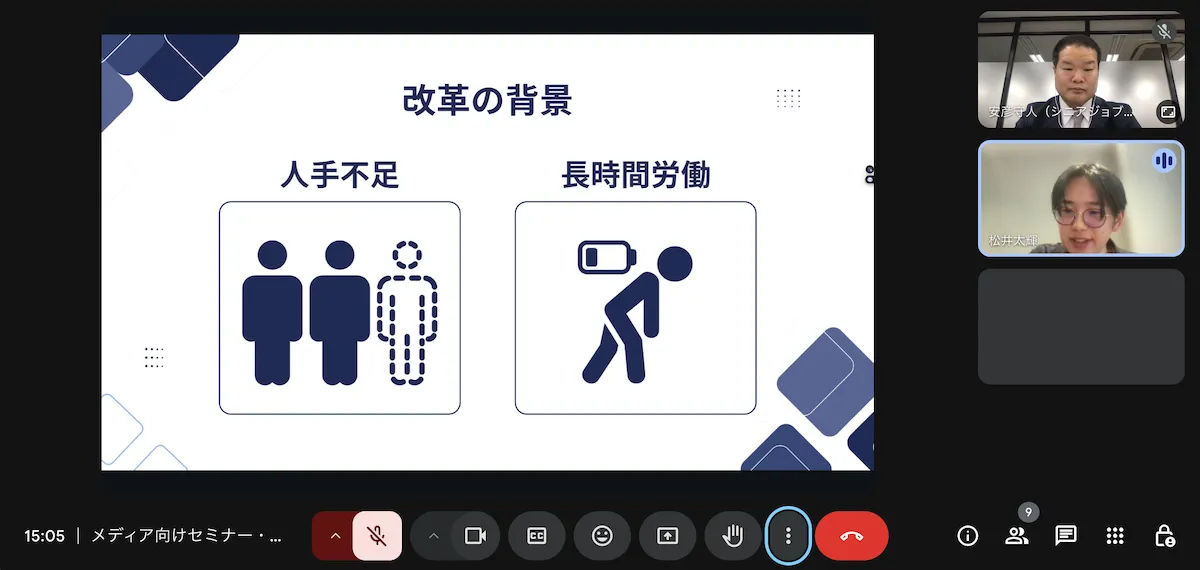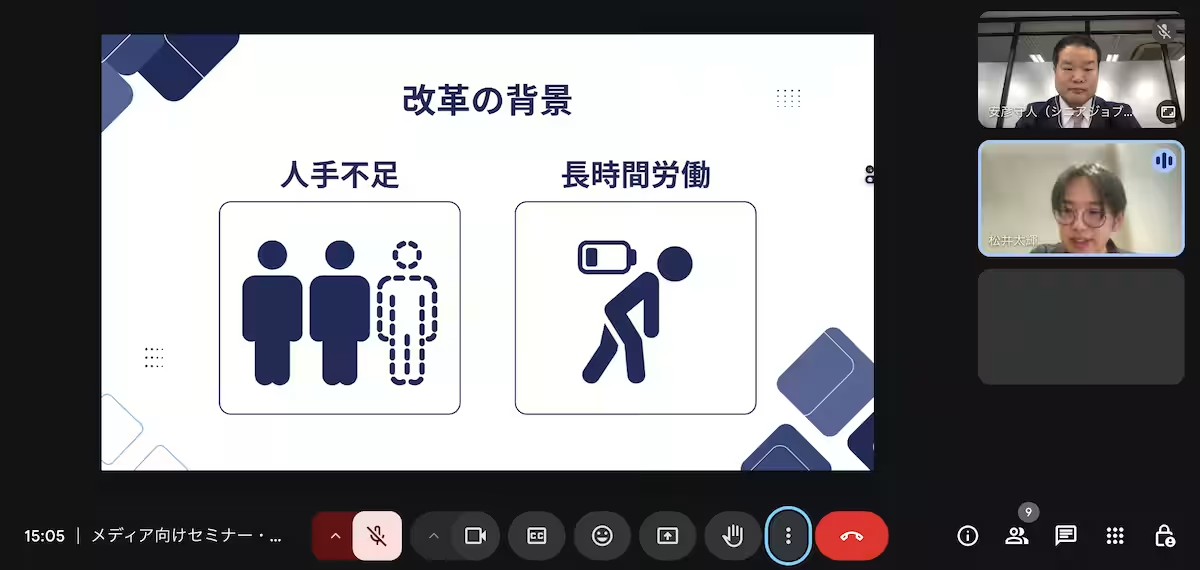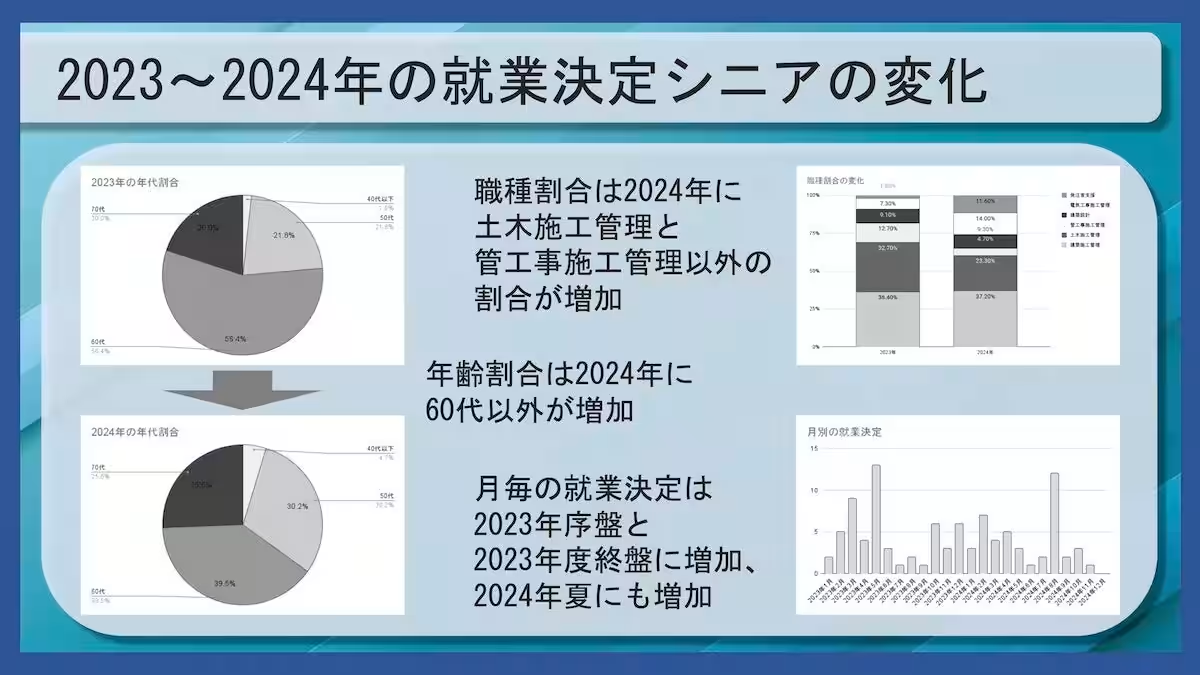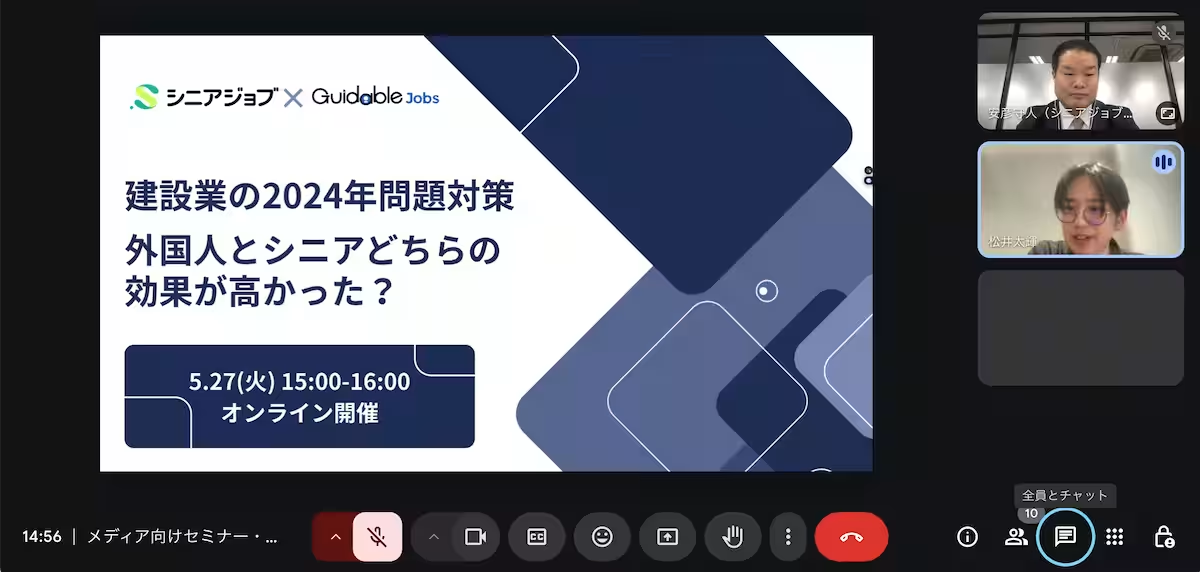

Exploring Recruitment Strategies for the Construction Industry: Senior Workers vs. Foreign Talent
Seminar Overview: The 2024 Issue in Construction
On May 27, 2025, Senior Job Co., Ltd., specializing in employment support for senior workers, collaborated with Guidable Co., Ltd., a company focused on HR services for foreigners, to hold a media seminar titled "Which is More Effective in the Construction Industry: Seniors or Foreign Workers?" The seminar addressed the impact of the 2024 issue in the construction industry, which has seen a tightening of overtime regulations, resulting in an increased need for effective recruitment strategies.
Key Conclusions from the Seminar
The two companies, despite serving distinct groups of job seekers, shared a wealth of experience in supplying talent to the construction industry. They provided insights into effective recruitment methods and the outcomes of placing seniors and foreign workers in various roles within the sector. The seminar concluded that while seniors often bring immediate skills and experience, foreign workers may be better suited for longer-term employment strategies that require workforce development.
Content of the Seminar
The presentation began with Guidable's Marketing Manager, Mr. Taiki Matsui, discussing the underlying issues affecting recruitment in construction. He pointed out that the construction industry does not only face the ramifications of the 2024 issue but also deals with deeper systemic issues such as a declining interest from younger generations, increasing costs associated with hiring, and specific restrictions on hiring methods due to the nature of various job roles. Mr. Matsui emphasized that these factors create a damaging cycle that exacerbates recruitment challenges.
He also shared data indicating that foreign workers made up approximately 10% of new hires in the construction sector, revealing an increase of 28,000 foreigners entering the job market between 2022 and 2023. Despite this, he noted that a staggering 90% of companies have yet to engage in foreign recruitment, particularly highlighting the potential for businesses in regions like Kanagawa to address labor shortages through foreign talent.
Insights from Senior Job
The latter part of the seminar featured insights from Mr. Morito Abiko, the Public Relations Manager of Senior Job. He discussed the trends in senior employment specifically in light of the 2024 issue, noting a shift in the age demographics of senior hires. In 2024, job placements saw a diversification beyond the previously dominant group of individuals in their 60s, indicating a broader age range of candidates being considered for various positions, including those in building management and support roles.
Changes in Job Listings
Analysis revealed that as of October 2024, senior-targeted job listings in construction had begun to incorporate more favorable conditions such as ample holidays and reduced overtime, which signal a conscious effort by the industry to adapt to the new regulations. The proportion of job offerings with these benefits rose to between 20-40%.
Recruitment Trends
Comparative data shows that in 2023, the average age of senior job seekers was 62.6 years, which slightly decreased to 61.7 years by 2024. Notably, there was an increase in younger seniors (under 50) finding work, rising from 1.8% to 4.7%. Furthermore, the job types that seniors filled expanded from primarily construction management roles to include support and practicality driven positions. The shifts suggest a promising trend towards a more inclusive workforce, providing extensive experiences and perspectives.
Implications for the Future
The findings from the seminar emphasize the urgent need for the construction industry to adapt its hiring strategies, particularly focusing on the viable benefits that both senior workers and foreign talent can bring. As the sector navigates through these changes, challenges persist, but the new insights could pave the way for more dynamic recruitment approaches as companies strive to meet increasing demand in a tightening labor market.
Both companies presented compelling arguments for increasing the integration of foreign workers while promoting the valuable skills that senior workers possess, further encouraging industries to consider diverse recruitment strategies moving forward.
Conclusion
The seminar highlighted a crucial moment for the construction industry, where both experience and fresh perspectives hold the key to overcoming current and future challenges. By embracing both seniors and foreign labor, companies can position themselves for lasting success and stability in a rapidly evolving market.




Topics Business Technology)










【About Using Articles】
You can freely use the title and article content by linking to the page where the article is posted.
※ Images cannot be used.
【About Links】
Links are free to use.